"Opus" is a documentary-style film that provides impressions of contemporary British arts and fashion, summarizing art through various ages and highlighting key movements and figures, such as Mary Quant and the Marat/Sade theatrical production. It was specifically made for the Montreal "Expo '67" exhibition, showcasing British cultural evolution to an international audience.
Trivia:
1. "Opus" was commissioned especially for Expo '67, making it a unique cultural artifact intended to represent British arts to a global audience during the 1967 world's fair.
2. The film incorporates a wide range of artistic disciplines, from fashion and theater to visual arts, highlighting a cross-disciplinary approach unusual for its time.
3. Featuring Mary Quant, a pivotal figure in 1960s British fashion, the film captures one of the earliest documentations of her revolutionary designs that helped popularize the miniskirt.
Full Cast of Opus

Twiggy
Herself
In the movie 'Opus', the iconic model and actress Twiggy delivers a performance that embodies her enduring charm and grace as she portrays herself. As Herself, Twiggy brings a layer of authenticity to the role, drawing from her real-life experiences as a fashion legend, which adds depth to the character. Her natural screen presence and understated acting style complement the narrative, allowing her to seamlessly integrate into the film's fabric. Twiggy's portrayal is a testament to her lasting influence in the world of fashion and entertainment, as she exudes confidence and sophistication, capturing the essence of her public persona while also giving viewers a glimpse into her personal charisma. Her appearance in 'Opus' serves as a delightful nod to her storied career and her enduring status as a cultural icon.
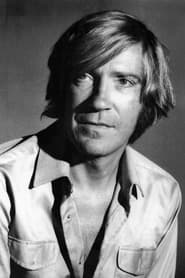
David Warner
Hamlet
David Warner's portrayal of Hamlet in the 1996 film "Opus" is a masterclass in the subtle interplay of madness and method. His Hamlet is a brooding, introspective prince, whose grief and anger simmer beneath a veneer of feigned insanity. Warner brings a raw intensity to the role, imbuing Shakespeare's complex soliloquies with a modern sensibility that renders the centuries-old text both accessible and arresting. His interactions with the other characters are fraught with tension and pathos, as he navigates the treacherous political landscape of Elsinore with a keen, albeit tortured, intellect. Warner's performance is characterized by a physicality that reflects Hamlet's internal turmoil, oscillating between bursts of frantic energy and moments of profound stillness. His embodiment of the character's psychological depths ensures that this Hamlet is not just a thinker, but a man of action, whose indecision and delayed vengeance become almost tangible in their weight. Warner's nuanced acting, which balances cerebral intensity with emotional vulnerability, solidifies his Hamlet as one of the most compelling interpretations of the 20th century.
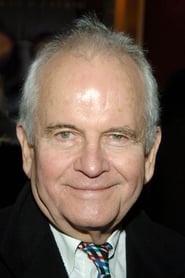
Ian Holm
Lenny (The Homecoming)
Ian Holm's portrayal of Lenny in the movie 'Opus' is a masterclass in subtlety and nuance. As the unpredictable and menacing brother who returns to his family home after a long absence, Holm brings a palpable intensity to the role of Lenny. His performance is characterized by a chilling stillness, punctuated by sudden outbursts of violence that keep both the characters and the audience on edge. Holm's Lenny is a complex figure, exuding an air of malevolence underpinned by a deep-seated family resentment. With his precise diction and measured movements, Holm crafts a character that is both intimidating and oddly pitiful, as he navigates the treacherous dynamics of a family reunion that spirals into psychological warfare. His ability to convey the simmering tension and the undercurrents of power and manipulation in his interactions with the other characters is a testament to his skills as an actor. Holm's Lenny is a memorable and haunting presence in 'Opus', a performance that underscores his reputation as one of the most versatile and compelling actors of his generation.
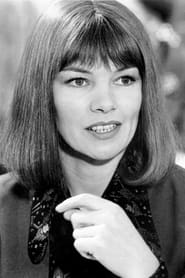
Glenda Jackson
Charlotte Corday (Marat/Sade)
In the 1992 film "Opus," adapted from the stage play "The Persecution and Assassination of Jean-Paul Marat as Performed by the Inmates of the Asylum of Charenton Under the Direction of the Marquis de Sade," Glenda Jackson delivers a performance as Charlotte Corday that is both chilling and poignant. Known for her fierce intelligence and commanding stage presence, Jackson brings a nuanced portrayal to the historical figure who assassinated the radical journalist Jean-Paul Marat during the French Revolution. Her Charlotte Corday is a complex amalgamation of idealism and disillusionment, embodying the fervor of revolutionary passion while grappling with the moral implications of violence as a means to an end. Jackson's Corday is not merely a political fanatic but a woman tormented by the consequences of her actions, a character at once condemned and pitied within the meta-theatrical world of the Charenton asylum. Her performance is a highlight of the film, capturing the essence of a moment in history where personal convictions and societal upheaval collide with tragic consequences. Jackson's Corday stands as a testament to her formidable talent for bringing historical characters to life with depth, humanity, and a haunting sense of relevance to contemporary discourse on revolution and the ethics of political violence.
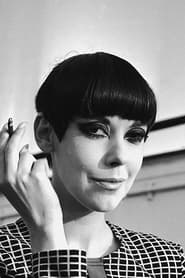
Peggy Moffitt
Herself
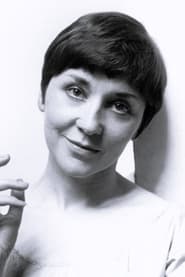
Vivien Merchant
Ruth (The Homecoming)
Crew of Opus
Full backstage crew list →




